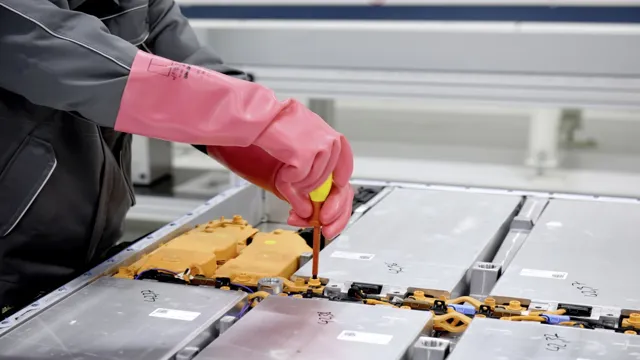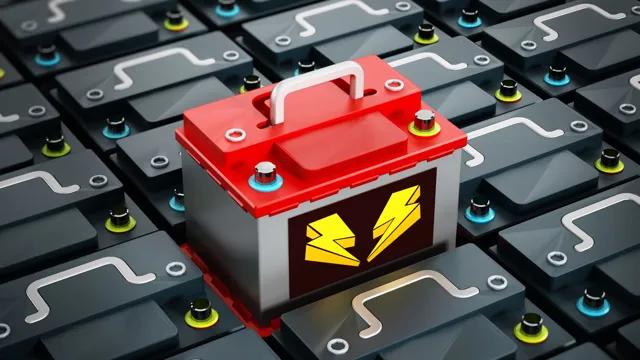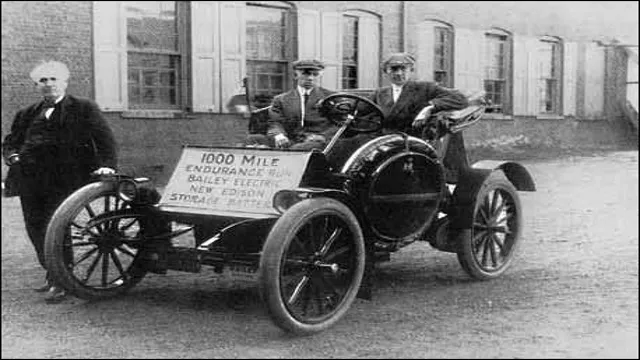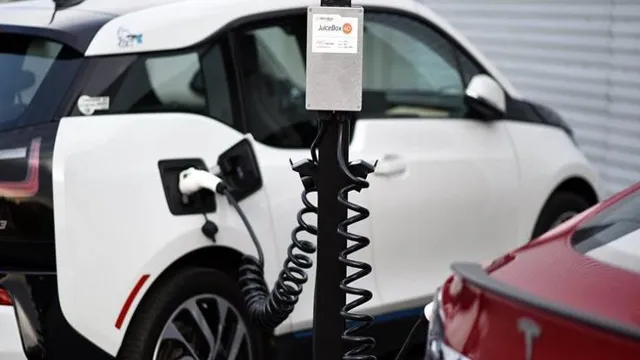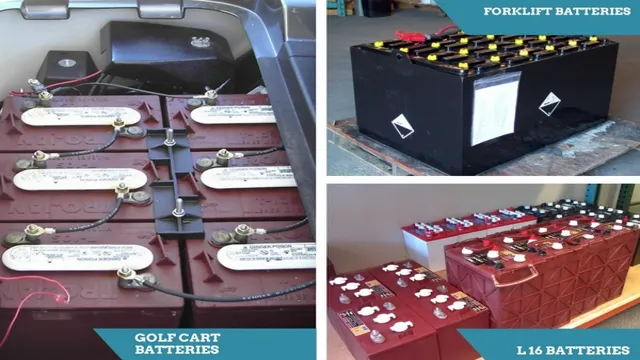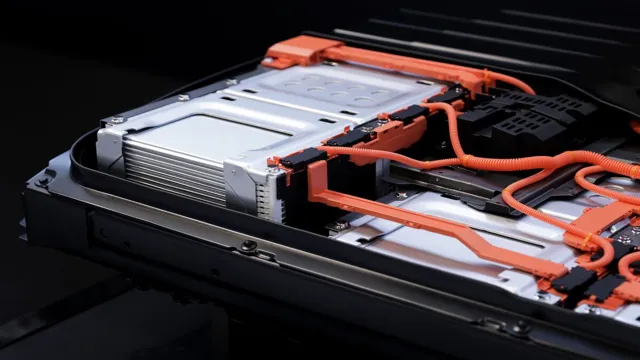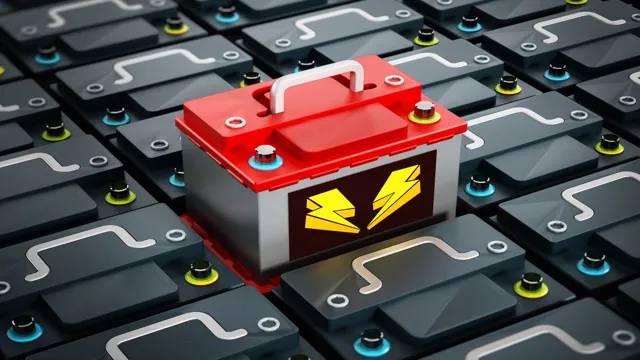Revolutionizing Sustainability in Australia: The Future of Electric Car Battery Recycling
Are you curious about what happens to electric car batteries once they can no longer power a vehicle? With the rise of electric cars in Australia, the question of battery recycling has become increasingly important. As electric cars gain popularity, the demand for battery recycling services is on the rise. This blog will delve into the world of electric car battery recycling in Australia, discussing the benefits and challenges of the process, current practices, and future developments.
Let’s explore the journey of electric car batteries from their first use to their final stop in recycling facilities.
Why is Battery Recycling Important?
Electric car battery recycling is becoming increasingly important in Australia as more people switch to electric vehicles. These batteries contain valuable materials that can be reused, but they also contain harmful substances that can damage the environment if they are not disposed of properly. By recycling electric car batteries, we can reduce waste and limit the amount of pollution that is created during the production and disposal of these batteries.
It also helps to conserve the earth’s resources by reducing the need for new materials to be mined and processed. Electric car battery recycling is a crucial part of building a sustainable future, and it is up to all of us to do our part in ensuring that these batteries are reused and recycled properly.
Environmental Impact of Batteries
Battery recycling is crucial for reducing the environmental impact of batteries. When batteries are not properly recycled, they end up in landfills, where they can leak hazardous chemicals into the soil and water. Additionally, mining for the materials needed to make batteries, such as lithium and cobalt, can have a significant impact on the environment.
By recycling batteries, these materials can be recovered and reused, reducing the need for new mining operations. Recycled batteries can also be used to create new batteries, further reducing the environmental impact of battery production. So if you want to do your part for the environment, be sure to dispose of your batteries properly and look for products made with recycled batteries.
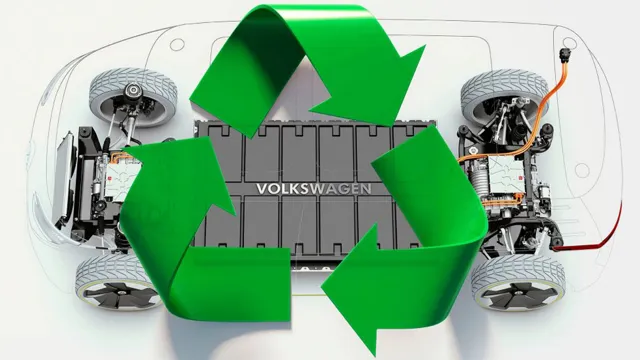
Benefits of Battery Recycling
Battery recycling plays a vital role in protecting our environment. Throwing away used batteries in regular trash cans can harm the environment by increasing the volume of electronic waste, polluting water, and soil. Recycling batteries will help reduce these hazards and reduce the need for mining and manufacturing new batteries, which entail an extensive use of energy resources.
With proper battery recycling, we can protect our environment and make use of valuable resources. Furthermore, battery recycling has the potential to create jobs, reduce the cost of manufacturing, and save money in terms of energy consumption. All in all, battery recycling is a win-win situation as it benefits both the environment and the economy.
So, go ahead and make the change by recycling your batteries when they reach the end of their life span.
Current State of Battery Recycling in Australia
Electric car battery recycling in Australia is not yet a well-established practice, but it is gaining more attention as the demand for electric vehicles grows. The Australian government, together with researchers and industry leaders, is taking steps to find sustainable and effective solutions for battery recycling. There are currently few facilities in Australia that specialize in battery recycling, but some companies are investing in this area, such as Neometals, which announced plans to build a recycling plant in Victoria.
Moreover, Australian universities are conducting research to develop new battery recycling methods, including using microorganisms to recover valuable materials from the batteries. The need for effective battery recycling is crucial to limit environmental harm and preserve valuable resources. As electric vehicle usage continues to expand, it is imperative that the industry meets the challenge of battery recycling head-on.
Statistics on Electric Car Sales
Electric car sales have been on the rise in recent years, with more drivers looking for eco-friendly alternatives to traditional gas-powered vehicles. However, as the number of electric cars on the road increases, so too does the need for proper battery recycling. Currently, the state of battery recycling in Australia is unclear, with some experts calling for more investment and research to ensure that these batteries are being disposed of in an environmentally-friendly manner.
Automotive manufacturers have a responsibility to take a more proactive role in this regard, designing batteries that are not only more efficient and sustainable, but also easier to recycle. While there is still much work to be done in this field, it is promising to see more and more companies taking steps towards a more sustainable future. As consumers, we can also do our part by choosing to purchase electric vehicles and properly disposing of old batteries.
By working together, we can help to create a cleaner, greener future for generations to come.
Battery Recycling Infrastructure in Australia
The current state of battery recycling in Australia is somewhat lacking, with many batteries still being disposed of in landfills instead of being properly recycled. There is a growing need for infrastructure to support the recycling of batteries, particularly as the use of electric vehicles and other technology that relies on batteries continues to increase. Currently, there are some companies operating in Australia that offer battery recycling services, but the infrastructure is not yet fully developed to handle the volume of batteries that need to be recycled.
As a result, there is a significant opportunity for investment and innovation in the battery recycling industry, which could have a significant impact in terms of reducing waste and promoting sustainability. While the current state of battery recycling in Australia is not ideal, there is reason to be optimistic that this will change in the coming years.
Challenges faced in Battery Recycling
Battery recycling is gaining attention in Australia, but there are still many challenges that need to be addressed. Currently, only a small percentage of batteries are being recycled, leaving many to end up in landfills and causing harm to the environment. One of the main challenges faced in battery recycling is the lack of infrastructure and facilities.
There are very few specialized facilities in Australia that can handle the recycling process. This results in long transport distances and makes the process expensive and less feasible. Another challenge is the variation in battery types and chemistries.
Different batteries require different techniques and technologies for recycling, making it challenging to implement a universal system. Furthermore, consumer behavior plays a significant role. Many people do not know how to properly dispose of their batteries, resulting in the improper disposal of many batteries.
Overall, improving Australia’s battery recycling infrastructure and increasing awareness about the importance of battery recycling can help address these challenges and create a more sustainable future for the country.
Initiatives and Innovations in Battery Recycling in Australia
Electric car battery recycling is becoming an increasingly important issue as electric vehicles become more popular in Australia. Fortunately, there are a number of initiatives and innovations emerging in the industry to help manage the large amounts of batteries that are expected to reach end-of-life in the coming years. One innovative project is the Lithium-ion Battery Recycling Facility in Victoria, which has been established as a joint venture between several Australian companies.
The facility is dedicated to recycling end-of-life batteries and producing valuable materials that can be used as a feedstock for new battery production. Another major initiative is the Australian Battery Recycling Initiative, which brings together many of the country’s leading battery and electric vehicle companies to collaborate on recycling solutions. Together, these organizations are working towards creating a more sustainable and efficient electric vehicle industry that can support Australia’s ambitious climate and transport goals.
By embracing innovative solutions like these, we can ensure that electric vehicle batteries are recycled responsibly and efficiently, reducing waste and helping to protect the environment for future generations.
Private Industry Initiatives
Battery recycling has become a major concern for private industries in Australia. In response to the growing demand for sustainable practices, several companies have come up with innovative initiatives to address the issue of battery waste management. One such initiative is the development of a new recycling process that extracts valuable materials from lithium-ion batteries, including cobalt, nickel, and lithium.
This process not only reduces the environmental impact of battery waste but also creates new opportunities for the production of electric vehicle batteries. Another notable initiative is the creation of a virtual marketplace for recycled batteries, where buyers and sellers can connect and trade materials. This platform allows businesses to source recycled materials at a lower cost, and it promotes circular economy practices.
Additionally, some private companies have also collaborated with local universities and research institutes to develop more sustainable battery materials and processes, further contributing to the advancement of battery recycling efforts in Australia. Overall, these private industry initiatives demonstrate a promising future for battery recycling in Australia and highlight the importance of working together towards sustainable solutions.
Government-led Programs and Policies
Australia has been taking significant steps towards battery recycling. The government has been focusing on the development and implementation of several programs and policies to encourage recycling and reduce hazardous waste. One such initiative is the Battery Stewardship Council, which works to establish a national system for collecting and recycling batteries.
The Council also focuses on research and education to improve the efficiency and safety of battery recycling. Additionally, the government has introduced regulations that require manufacturers to take responsibility for the disposal of their products, including batteries. These programs aim to create a circular economy, reducing waste, and minimizing the environmental impact of battery production and disposal.
With these efforts, Australia is becoming a leader in innovative and sustainable battery recycling solutions.
Looking Ahead: Future of Battery Recycling in Australia
As electric cars gain more popularity in Australia, the need for reliable battery recycling methods becomes increasingly evident. Currently, there are limited facilities for electric car battery recycling in the country, making access to sustainable disposal options challenging. However, the government has taken steps to develop a recycling industry here by investing in companies that focus on battery recycling, partly through research and development.
Technological advancements present a promising future for electric car battery recycling in Australia, which will increase an alternate source of renewable energy production. It’s crucial to establish an efficient and environmentally friendly approach to battery disposal to reduce the negative impacts of automotive waste on the environment. We can expect to see significant progress in the coming years as private companies and governmental organisations collaborate to design a more comprehensive recycling infrastructure.
It will help to secure the preservation of the environment for our future generations.
Conclusion
In summary, electric car battery recycling is a crucial aspect of sustainable transportation in Australia. By repurposing and reusing valuable materials, we can reduce waste and lessen our impact on the environment. As we continue to embrace electric vehicles, let’s not forget to prioritize the responsible disposal and recycling of their batteries.
After all, as the saying goes, reduce, reuse, recycle – it’s the three R’s that make the world go round!”
FAQs
What is electric car battery recycling and why is it important?
Electric car battery recycling involves recovering valuable materials from spent batteries to be reused in new batteries. It is important to reduce waste and conserve natural resources.
Can all electric car batteries be recycled in Australia?
Currently, not all types of electric car batteries can be recycled in Australia, but efforts are being made to develop a more comprehensive recycling system.
How does electric car battery recycling benefit the environment?
Recycling electric car batteries reduces the amount of waste sent to landfills and conserves natural resources by recovering valuable materials used in battery production.
Are there any regulations in place for electric car battery recycling in Australia?
Yes, the Australian government has introduced regulations for the safe and efficient recycling of electric car batteries to protect the environment and public health.
